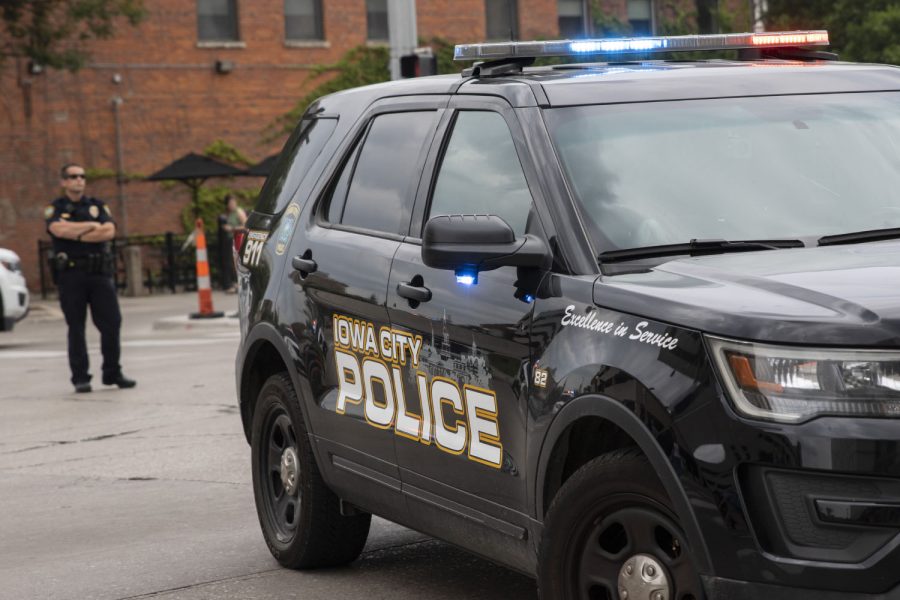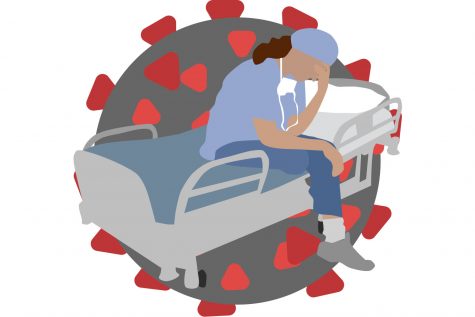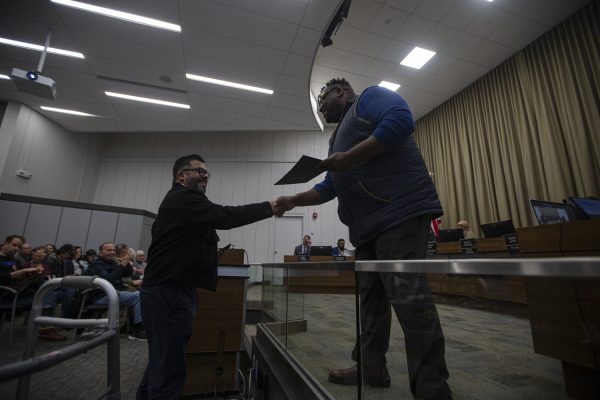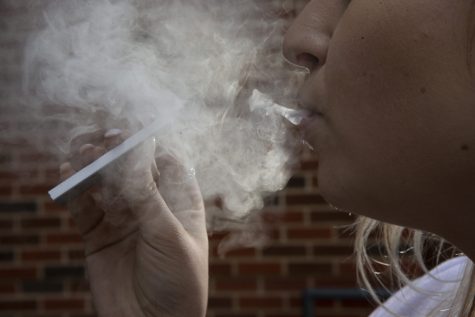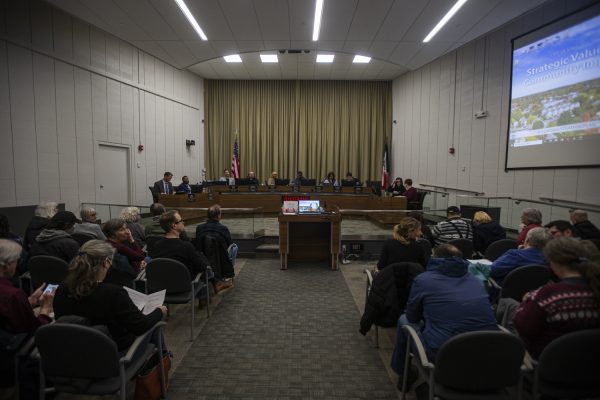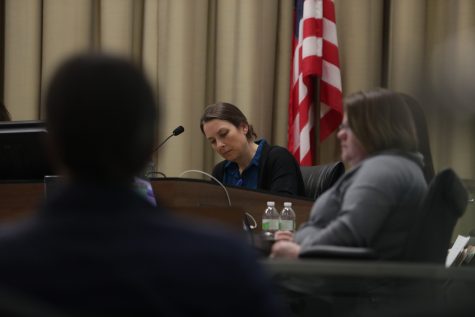Iowa City racial equity report card shows increases in traffic violations, decreases in juvenile charges
The report card, which compares data between 2019 and 2015, shows significant changes in data regarding traffic stops as well as juvenile charges.
Iowa City Police Department vehicles are seen on July 9, 2019.
November 15, 2020
The City of Iowa City released a racial-equity report card earlier this month comparing data between 2015 and 2019, which showed a significant decrease in juvenile charges, but an increase in traffic stops.
The report showed a 43-percent decrease in overall youth charges/referrals to the juvenile system and a 36-percent increase in traffic stops, among male Black or African American residents and male American Indian and Alaska Native residents. Stops among female Black or African American residents increased by 23 percent and stops among female American Indian and Alaska Native residents decreased by 30 percent.
The report card is a compilation of data from the Iowa City Police Department Annual Report, the U.S. Census, the Iowa City Human Rights Commission Annual Report, and the Iowa City Employee Statistics Report.
Traffic stops increased overall by 12 percent among men and 13 percent among women.
Iowa City Police Department Interim Police Captain Denise Brotherton said, according to the department’s Juvenile Detective Gabe Cook, the decrease in youth charges over the four-year period was primarily a result of the juvenile diversion program.
Brotherton said the program was developed in an effort to avoid putting residents under 18 in the juvenile justice system, and that – if the approximately four-hour program was successfully completed by the resident – no charges would be brought against them.
Infographic by Eleanor Hildebrandt/The Daily Iowan
Brotherton added that the disorderly conduct program began in 2014 and is run by the Linn County Detention Center, while the fifth-degree theft program, run by United Action for Youth, began in 2016.
“Theft 5th degree and disorderly conduct were always our top two arrests (by a significant amount) for juveniles,” Brotherton wrote in an email to The Daily Iowan. “Making these two charges no longer an arrest, greatly decreased the amount of arrests. Another factor is the police department reached out to schools and retail stores (these 2 locations accounted for a majority of juvenile arrests) to work on decreasing the number of juvenile arrests.”
RELATED: ICPD and UIPD encourage education over punishment as bars reopen
Brotherton said Cook has not seen any changes to juvenile arrest data as a result of the Black Lives Matter movement or any protests, and predicts that 2020’s numbers will remain relatively stable.
She said the department is discussing expanding the program to cover all simple misdemeanors as well, which she said should result in another significant decrease in juvenile arrests, if implemented.
Brotherton said the recent Iowa City police policy, which discourages officers from stopping residents based on secondary traffic violations, would ideally decrease the number of traffic stops among Black or African American residents and American Indian or Alaska Native residents.
Infographic by Eleanor Hildebrandt/The Daily Iowan
The report card also showed that complaints alleging racial discrimination in Iowa City had no change from 2015 to 2019, remaining at 19 complaints over the four years.
Iowa City Equity Director and LGTBQ Liaison to the city Stefanie Bowers said most complaints the city receives are related to the workplace, followed by housing.
“Since 2015, we have instituted an online complaint form that can be submitted 24/7, also a person can report and incident of discrimination without filing a report 24/7,” Bowers wrote in an email to the DI. “We also translate Know Your Rights brochures in multiple languages to attempt to reach a broader audience and work with the University of Iowa Office of Diversity, Equity, and Inclusion to approach discriminatory behavior on a proactive basis.”
She said she thought racial discrimination incidents go may go unreported to the city, as someone might not immediately know they’ve been discriminated against or aren’t aware of the services the city offers for people who submit complaints.
Infographic by Eleanor Hildebrandt/The Daily Iowan
Iowa City City Councilor Janice Weiner said the report highlighted areas where the city could improve, such as its handling of traffic stops.
“I think we all understand we need to do better,” Weiner said. “That’s why we’re looking at all these different ways to reduce secondary traffic stops, and to look at ways to improve this so that we’re not stopping people for driving Black — that sort of thing.”
Regarding the decrease in juvenile charges/referrals, Weiner said the juvenile diversion program focuses heavily on making sure juveniles do not get put in front of the court system at all.
“So many people screw up in their teens one way or the other,” Weiner said. “You don’t want to have something like that on your record going forward when you’re trying to go to school to get a job or anything else. So, a really strong, effective diversion program that helps people deal with whatever their issues are … that’s what the program is designed to find out.”



